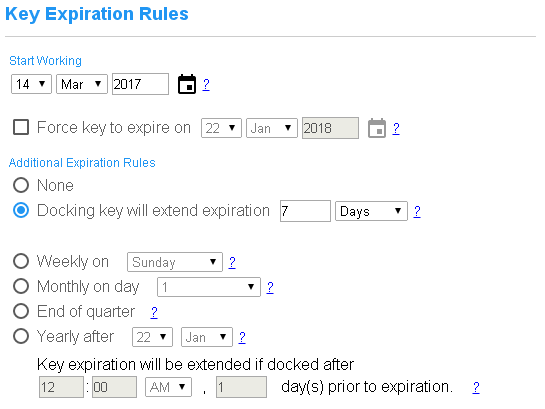Expiration Rules

|
| Expiration is an important means to achieve key control with CyberKeys and CyberLocks. Regular expiration
and renewal reduces the exposure and subsequent risk of a lost or stolen key because an expired key will not
open locks.
CyberKey expiration takes effect as soon as it ceases to be the day or date of expiration. In other words, the key will work up through 11:59pm on the day or date specified. The key will expire as soon as the clock rolls to 12:00am, since the date will have advanced. The exception to this is with a rolling expiration of minutes or hours. These will set the key to stop working at a specific hour or minute of the day. This form enables setting expiration "rules" to enable ongoing control. In addition, a start date for the key may be set to prevent the key from working before it should. Start Date - The "Start Date" is the day a key will begin working. By default, it is the day the key is added to the system. Expiration Rules - CyberKey expiration takes effect as soon as it ceases to be the day or date of expiration. For most expiration rules, that means the key will work till the end of the day or date specified. The key will expire as soon as the clock rolls to 12:00am, since the date will have advanced. Expirations rules of "minutes" or "hours" will set the key to stop working at a specific hour and minute of the day.
|

